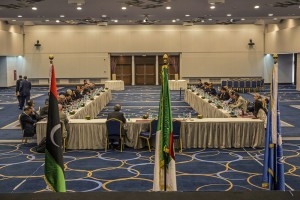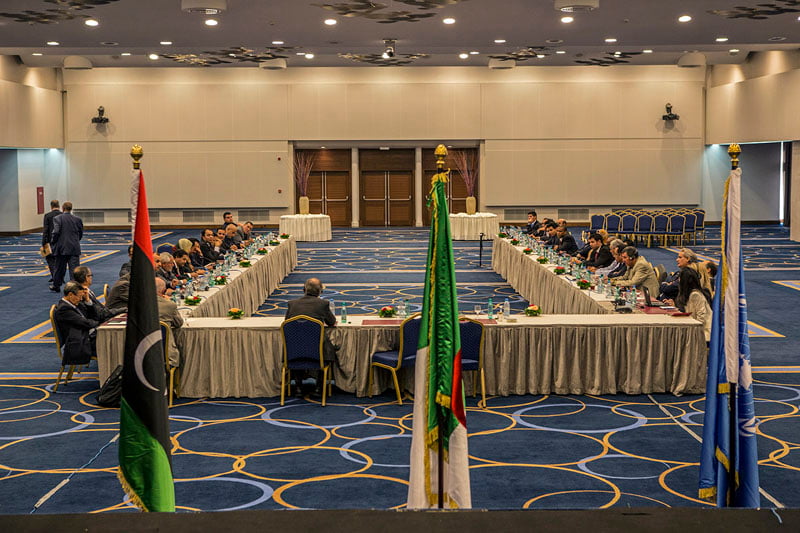By Hadi Fornaji.

Tripoli, 4 June 2015:
Libyan politicians from across the spectrum have wrapped up their two-day meeting in Algiers with a . . .[restrict]communique which begs both sides in the peace process dialogue to make compromises.
The gathering of politicians and activists, the third such meeting, appeared to have taken on board the warning of UNSMIL chief Bernardino Leon that Libya no longer had the time to hammer out a perfect agreement. With the country on the brink of economic and social collapse and the rising menace of IS terrorism, a deal for a national unity government had to be made in the coming days.
Leon is hoping that the final concessions and compromises will be agreed next week when the delegations from the House of Representatives and Libya Dawn are expected to meet again in Morocco.
UNSMIL has followed up each substantive negotiating session with consultative meetings, which it refers to as “tracks”. There have been consultations with the political actors, the latest and, Leon will be hoping, the last of which ended today. Local municipalities have had their own track and there have also been consultations with women’s groups.
Much of what emerged at the end of today’s meeting echoed the communiques from the last political meetings in March and April, in particular the need for the safe passage of humanitarian aid to conflict areas.
There was however a louder note of alarm at the rise of IS and a stronger call for a single police and army to confront the terrorists, which the politicians agreed could only come with the emergence of a united government.
They called for an immediate end to the conflict “through genuine political partnership, transparent governance and a commitment to fight corruption”.
They also said that all parties should “show flexibility and make the necessary concessions to achieve a political agreement that is comprehensive, balanced, consensual and to move quickly to form a Government of National Accord that can swiftly assume its responsibilities to tackle the many difficult challenges facing Libya on the security, political and economic levels”.
They added a rider appealing for the negotiators to hold direct, face-to-face discussions. This they linked to a warning that any individuals or groups who obstructed the political process should be held accountable in accordance with the relevant UN Security Council resolutions.









